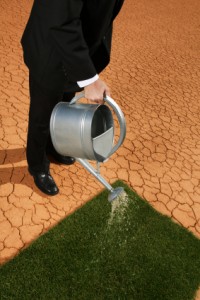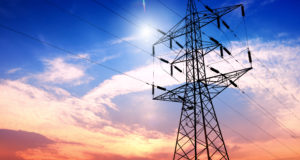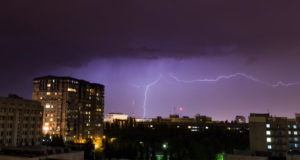|
Listen To The Article
|
With human population just about ready to surpass the seven billion mark, access to the necessities of life is more at risk for a larger number of the people than has ever before been the case. But while some of these shortages may threaten the future of humanity, others are already creating havoc and misery right now, in the present.
 Included in the latter category is the current situation with the world’s water supply. More than one billion people now lack access to clean drinking water, and this problem is exploding faster than the spread of mass hunger, which usually gets a lot more publicity. But while human beings can sometimes live for weeks without food, without water they will die in a very short period of time, which makes insufficient supplies of drinking water a problem that could potentially wipe out hundreds of millions of people during an emergency much more quickly than any plague or famine.
Included in the latter category is the current situation with the world’s water supply. More than one billion people now lack access to clean drinking water, and this problem is exploding faster than the spread of mass hunger, which usually gets a lot more publicity. But while human beings can sometimes live for weeks without food, without water they will die in a very short period of time, which makes insufficient supplies of drinking water a problem that could potentially wipe out hundreds of millions of people during an emergency much more quickly than any plague or famine.
The concept of peak oil is probably familiar to most by now. The idea is that the earth has reached a point of no return with the supply of oil, and it is inevitable that shortages will occur more and more frequently in the years ahead until the world’s supply of petroleum finally either runs out or becomes so prohibitively expensive to obtain that no one will even bother to try and pump it out of the ground anymore. Obviously inspired by the term “peak oil,” some have begun referring to the situation with the world’s water supply as “the peak water problem.”
To Peak or Not to Peak, That is the Question
In one sense, comparing oil and water is like, well…comparing oil and water. Geological processes slowly turned organic matter into oil over the course of tens of millions of years, and because this activity takes such a long period of time from the perspective of human society, it is clear that oil is a finite resource—in other words, the earth can’t possibly make new oil as fast as we are using it up. Water, on the other hand, is constantly recycled by nature because it is a part of a closed system where nothing can ever be truly gained or lost. With water, the problem is that when it becomes polluted, it is no longer usable, and when too many people live in arid areas where supplies are limited, there are shortages because it is simply too expensive to ship it in or divert it in adequate quantities from somewhere else. To put it more simply, water shortages are relative and conditional, whereas shortages of oil ultimately are irrevocable and absolute.
So unlike oil, water is not really running out. But human beings need plentiful supplies of clean water that is fit to drink and bathe in, and they need it to be located in the places where they are actually living. Also, they need it to be used efficiently, in the least wasteful way possible, so that the supplies that do exist are available when people really need them.
The Balance of Nature
It is of course true that God told His people to be fruitful and multiply. But He didn’t tell them to congregate in overcrowded cities, or to build those cities in arid wastelands. He also didn’t tell them to try and grow foods in areas that were so dry that valuable water would have to be taken out of the ground and dumped on crops because there was no rainfall.
The problem of peak water is not so much a problem of too many people as it is a problem caused by foolish social, cultural, and economic practices that plunder the earth and enrich a few elites at the expense of everyone else. When Jesus threw the money changers out of the Temple and stated that a camel would pass through the eye of a needle before a rich man would get into heaven, he was not so much condemning wealth and success as he was condemning those who used their wealth to try and gain control over other people’s lives.
Lust for power is the real root of evil in modern society. If the world is now facing critical shortages of drinkable water, it is because those who seek the kind of power that should only be reserved to the Lord have been willing to pillage the earth and exploit its resources because they know the consequences of these actions will be visited upon the poor huddled masses and not upon themselves. Putting cities in deserts, wasting millions of tons of water to make things grow where they were never meant to grow, and letting industries use lakes and rivers as their dumping grounds shows a contempt for God’s creation that is appalling, but logical for a society that has embraced a materialistic philosophy of life that allows a few to live in luxury while billions of others struggle just to survive.
Finding The Human Scale
The off-the-grid philosophy emphasizes the importance of freedom and independence. But there is something else that is inherent in this choice of lifestyle, and that is respect. Living successfully off the grid is only possible when there is a recognition of limits and a respect for the wisdom of nature, which is ultimately a reflection of a greater divine reality. Carefully using resources means respecting the fact that they are limited, and when it comes to water this means planting crops that grow naturally in the geographical area where we live, collecting rainwater and purifying it for our own use whenever possible, drilling wells and living where the water in the ground is sufficient to sustain us, and trying to use up as little of this precious resource as we possibly can as we go about our daily activities.
Peak water is the product of a society that believes itself to be so powerful that it can overcome all limits and conquer nature through technology and science. But inevitably, societies that refuse to recognize limits collapse under the weight of their own hubris. In the current situation, the off-the-grid alternative may be the only way we can get back to living in balance and in harmony with nature once again, as God always intended. When society has gone insane, the correct response is to try and live as sanely as you can, in the hopes that maybe you can help plant a seed that may eventually grow into something new and better.
©2011 Off the Grid News
 Off The Grid News Better Ideas For Off The Grid Living
Off The Grid News Better Ideas For Off The Grid Living



